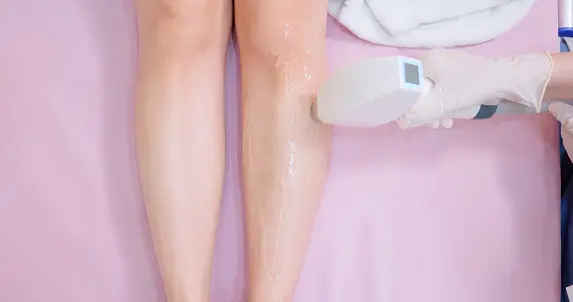Laser hair removal primarily targets hair follicles with the aim of permanently reducing or removing hair growth in the treated area. It is a localized cosmetic procedure that does not have a significant impact on your immune system.
The laser used in hair removal emits concentrated light energy that is absorbed by the pigment (melanin) in the hair follicles. This energy is converted into heat, which damages the follicles and inhibits hair growth. The procedure does not involve the introduction of foreign substances into your body, and it does not typically affect your immune system.
However, like any medical or cosmetic procedure, there can be potential side effects or complications associated with laser hair removal. These side effects are usually limited to the treated area and may include temporary redness, swelling, and skin irritation. In very rare cases, some individuals may experience more severe side effects such as burns or changes in skin pigmentation. It’s essential to follow the guidance of a qualified and experienced practitioner to minimize the risk of these complications.
Overall, laser hair removal should not have a direct impact on your immune system, as it primarily targets hair follicles in the skin. If you have concerns about how laser hair removal may affect your health, it’s best to consult with a healthcare professional or dermatologist who can provide personalized advice based on your specific circumstances.

What vitamins should I avoid with laser hair removal?
Laser hair removal is generally not influenced by the consumption of vitamins, but there are some considerations and precautions you should keep in mind:
- Vitamin A: Excessive intake of vitamin A, either through supplements or certain medications like isotretinoin (Accutane), can make your skin more sensitive and prone to damage from laser treatments. It’s advisable to avoid high doses of vitamin A for a period before and after your laser hair removal sessions. Always consult with your healthcare provider if you’re taking medications containing vitamin A.
- Vitamin C: Vitamin C is an antioxidant that supports skin health and wound healing. While it’s generally safe, extremely high doses of vitamin C might cause skin sensitization. Avoid taking mega-doses of vitamin C before your laser hair removal treatment, but a normal dietary intake of vitamin C from fruits and vegetables is not a concern.
- Vitamin E: Some people believe that vitamin E can interfere with wound healing and skin recovery after laser treatments. However, there is limited scientific evidence to support this claim. In general, it’s advisable not to apply topical vitamin E products directly to the treated area before or after a laser session, as it may irritate the skin.
- Multivitamins: Most multivitamins contain a combination of vitamins and minerals. While they are unlikely to directly affect laser hair removal, it’s a good practice to discuss your supplement regimen with your healthcare provider before your treatment. They can provide personalized advice based on your specific needs and potential interactions.
- Herbal Supplements: Some herbal supplements and botanical extracts may have effects on skin sensitivity or blood clotting. It’s essential to inform your laser hair removal technician or dermatologist about any herbal supplements you are taking, as they can advise you on whether any of them should be temporarily discontinued before the procedure.
In general, the key to a successful laser hair removal experience is to follow the specific pre- and post-treatment guidelines provided by your practitioner. These guidelines may include recommendations regarding skincare products, sun exposure, and dietary considerations. Always communicate openly with your laser technician or dermatologist about any medications, supplements, or skincare products you are using to ensure a safe and effective treatment.
Does laser hair removal destroy collagen?
Collagen is a protein that provides structural support to the skin and helps maintain its elasticity. Some laser treatments, such as fractional lasers or non-ablative lasers, are specifically designed to stimulate collagen production and improve skin texture. These lasers work by creating controlled micro-injuries in the skin, which then triggers the body’s natural collagen production as part of the healing process. These lasers are used for purposes like skin rejuvenation and scar reduction.
In contrast, standard laser hair removal treatments primarily target the hair follicles located beneath the skin’s surface. The laser energy heats and damages these follicles to inhibit hair growth. The surrounding skin is generally not affected by the laser energy, and collagen levels are not significantly impacted.
That said, it’s essential to follow proper aftercare instructions after laser hair removal to minimize the risk of potential side effects such as temporary redness or irritation. These side effects are generally localized to the treated area and do not involve collagen destruction.
If you are interested in skin rejuvenation or addressing other skin concerns, you may want to explore different laser treatments specifically designed for those purposes. These treatments can stimulate collagen production and improve the overall quality of your skin. However, they are distinct from laser hair removal procedures. Always consult with a qualified dermatologist or healthcare provider to determine the most appropriate laser treatment for your specific goals and skin type.
